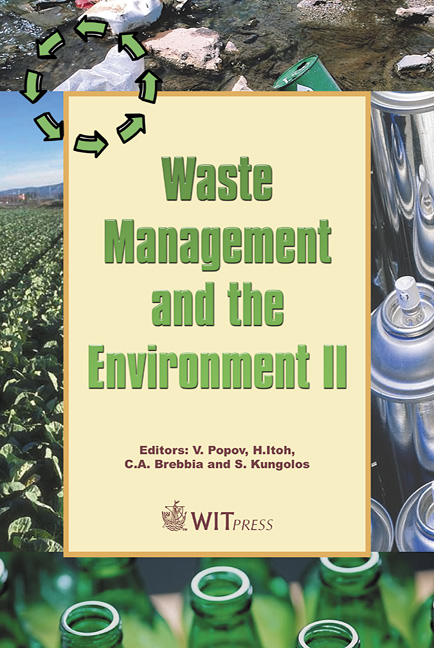Compost Amended On A Degraded Mediterranean Soil: Effect On Microbial Colonization Of Kermes Oak Leaf Litter
Price
Free (open access)
Transaction
Volume
78
Pages
10
Published
2004
Size
283 kb
Paper DOI
10.2495/WM040231
Copyright
WIT Press
Author(s)
M. Larchevêque, V. Baldy, N. Korboulewsky, C. Fernandez & E. Ormeño
Abstract
Terrestrial Mediterranean ecosystems are characterized by low water and organic matter soil content, which become worse with recurrent fires. Biosolids amendment could be a way to facilitate ecosystem resilience. Leaf litter decomposition is a vital process in the functioning of terrestrial ecosystems and can be studied through fungi and bacteria. We determined fungal and bacterial biomass associated with decomposing kermes oak leaves in a burnt shrub ecosystem for every season over 1.5 years. Three treatments were studied: control, 50t.ha-1 and 100t.ha-1 of co-composted sewage sludge and green wastes. The results showed that bacterial numbers were not affected by organic amendment, although fungal biomass was depressed on plots amended with 100t.ha-1. However, both types of micro-organisms followed a marked seasonal dynamics, with peaks of biomass during the wet periods of the year. Keywords: Mediterranean ecosystem, sewage sludge compost, leaf litter, decomposition, ergosterol, bacterial numbers, Quercus coccifera L. 1 Introduction Soils under Mediterranean climate are undergoing degradations due to water erosion and recurrent fires, which affect their fertility [1]. Guerrero et al [2] pointed out that compost addition is a suitable technique for accelerating the natural recovery process of burned soils. Indeed, biosolids can improve soil physical, chemical and biological properties [3]. Composts with large C/N ratio
Keywords
Mediterranean ecosystem, sewage sludge compost, leaf litter, decomposition, ergosterol, bacterial numbers, Quercus coccifera L.





